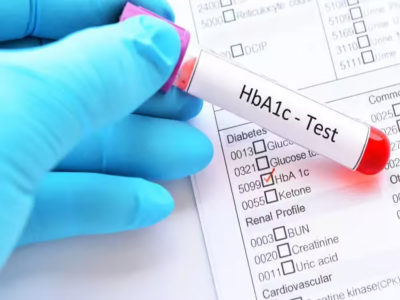Kidney disease now affects nearly one-fifth of India’s population, yet late diagnosis and limited access to treatment have turned it into a silent epidemic. Health experts stress the need for better awareness and early screening to tackle this growing problem.
In a dialysis ward at a Delhi hospital, the steady hum of machines fills the air as patients sit uneasily, adjusting the catheters in their arms. Just a year ago, many of them were managing businesses and looking after their families. Now, they spend three days a week undergoing dialysis—a harsh reality of chronic kidney disease (CKD), which has quietly spread across millions of Indian households.
Rising cases and late diagnosis
On World Kidney Day, experts highlighted the alarming rise of kidney disease in India, with nearly 17% of the population affected, according to a study in the Indian Journal of Nephrology. Despite these figures, awareness remains dangerously low.
“Many patients don’t realise their kidneys are failing until most of the damage is done. Symptoms like fatigue, swelling, and breathlessness often appear when kidney function is already severely compromised,” said Dr Umesh Gupta, Director of Nephrology at Aakash Healthcare. Early detection through regular screening is key to preventing irreversible damage.
Link to diabetes and hypertension
Kidney disease is closely tied to other common health issues like diabetes and hypertension. Dr Reetesh Sharma, Director and Head of Nephrology at Asian Hospital, explained that uncontrolled blood sugar damages the kidney’s blood vessels, impairing their ability to filter waste.
“Nearly 30% of diabetic patients eventually develop kidney disease. Since early-stage CKD often shows no symptoms, most cases are only diagnosed after significant damage has occurred,” he added.
Also read: Delhi: 80-year-old woman donates kidney to save her son’s life
Heart and kidney connection
There’s also a strong link between kidney and heart health. “When the kidneys fail, fluid and toxins build up, putting added strain on the heart. This increases the risk of high blood pressure, heart failure, strokes, and heart attacks,” said Dr Soubeer Ghosh, Consultant in Nephrology at PSRI Hospital.
Barriers to early treatment
Access to treatment remains a major challenge. A report from the Indian Society of Nephrology reveals that India has just one dialysis centre for every 3-lakh people, leaving many patients without affordable care. “Routine tests like urine analysis and creatinine levels can detect kidney issues early, but awareness about these screenings is still low, especially in rural areas,” said Dr Aakaar Kapoor, CEO of City Imaging & Clinical Labs.
Cognitive impact of CKD
Kidney disease affects more than just physical health. Cognitive issues like memory loss and poor concentration are common in CKD patients. “When the kidneys fail to remove toxins, these substances reach the brain, leading to mental fog and confusion,” said Dr Praveen Gupta, Principal Director of Neurology at Fortis Hospital.
The path forward
Experts recommend regular testing, managing diabetes and hypertension, and adopting kidney-friendly habits like drinking enough water, reducing salt intake, and avoiding over-the-counter painkillers.
“For diabetes, keeping HbA1c below 7% through diet, exercise, and medication can protect the kidneys. Some newer diabetes drugs also reduce urinary protein loss, benefiting even non-diabetic patients,” said Dr Mahendra Dadke, Consultant at Jupiter Hospital.
“For hypertension, maintaining blood pressure below 130/80 mmHg through medication and lifestyle changes can protect both the heart and kidneys,” he further added.
Early diagnosis and better access to care are crucial to slowing the rise of kidney disease and improving outcomes for millions of Indians.
Also read: Understanding Epilepsy: Causes, symptoms, and treatment





